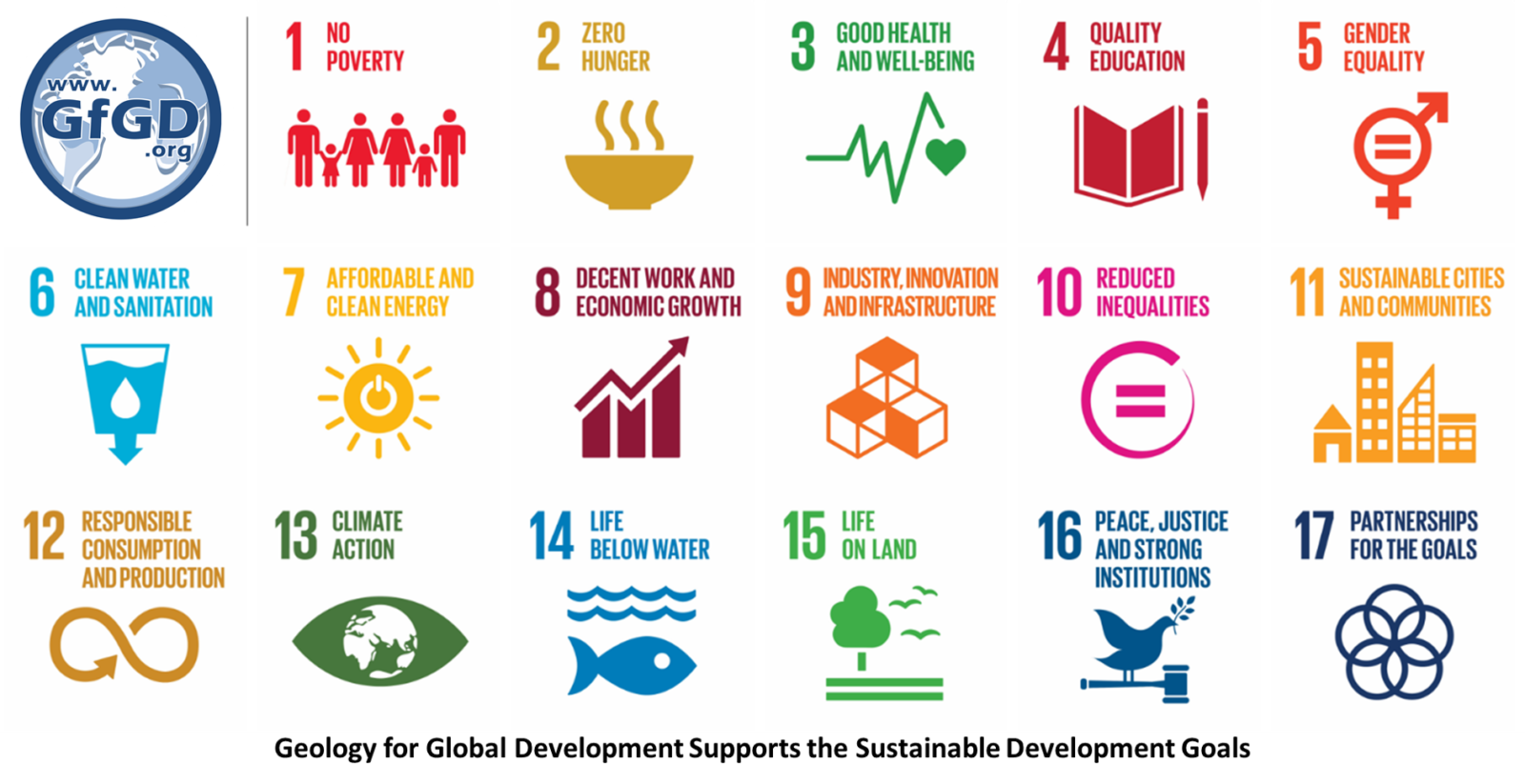A new paper published in Episodes: The Journal of International Geoscience highlights the importance of geoscience in tackling complex development challenges, and the need for new approaches to overcome barriers preventing greater application of geoscience within development. ‘Interconnected geoscience for international development‘, written by Professor Michael Petterson of Auckland University of Technology (New Zealand) sets out a conceptual model that combines geoscience expertise with an understanding of developmental situations, conditions, and context.
The Sustainable Development Goals (SDGs) and Sendai Framework for Disaster Risk Reduction require geoscientists from across all sectors and sub-disciplines to get involved, improve access to their science, and participate in effective and respectful capacity building and knowledge exchange (read more here). In this new article, Petterson (2019) reflects on his experiences as a geoscientist working in two sharply contrasting development contexts (the Solomon Islands and Afghanistan) to synthesise key learning. With one funding cycle starting as another comes to an end, taking time to reflect on and share lessons learned is sadly not always typical. As the SDGs and a renewed focus on science-for-development provide geoscientists with greater opportunities to engage in international development, this reflection is of great importance.

One factor discussed by Petterson (2019) is the importance of both understanding and valuing situational context (including local world views), and using this to enrich the design and implementation of projects. Another is the importance of inclusivity, building strong networks and actively including local wisdom. While good technical geoscience knowledge and skills are greatly needed in development programmes, these must be complement by a suite of other skills (often missing from the traditional education of geoscientists). Recognising this, and helping geoscientists to build these skills, is central to the work of Geology for Global Development.
Petterson (2019) notes: “Developmental setting/conditions are the foundation: these will guide how the geoscience is to be optimally applied. Projects are devised with development goals in mind and outputs/services tailored to meet the needs of policy makers and practitioners. Local affected communities must be at the heart of project outcome design. An interconnected approach places importance on issues such as inclusivity, environment and local focus, indigenous and non-conformist world-views, valuing and incorporating traditional knowledge, the possibilities of citizen-science and geoscientist-community connections/relations. The interconnected approach adopts the equal and respectful inclusive approach from the earliest stages of programme conception and development. Interconnected geoscience approaches, provide a conceptual model for the possibilities of science + social science + community + local world views, to feed into policy and communal acceptance of policy. An interconnected geoscience approach stands a better chance of addressing complex, regional and global development issues, including planetary health and global climate change. The approach improves the probability of practitioners using research results, and researchers undertaking research that addresses the highest level needs of development.”
Read the whole article (open access) here.
